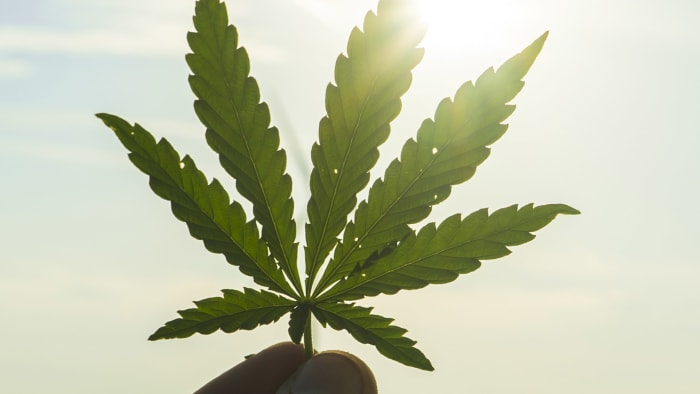Cannabis News Week: Can Cannabis Prevent Covid Infections?
After decades of suppression, the medical benefits of cannabis are well known and are often used by advocates to push for more freedom for both recreational and medicinal users.
But there are new studies being conducted constantly, and the medical community may just be scratching the surface of understanding the benefits of marijuana.
Researchers at Oregon State University are expected to present information on using natural products, including hemp, to treat covid-19 at a virtual event called “Natural Products and Hemp: Under-appreciated Sources for Covid-19 Therapeutic Agents” on Dec. 6.
This event comes about a year after the school published a study that found that compounds in cannabis could prevent the virus that causes covid from infecting human cells.
Richard van Breeman, a professor of pharmaceutical sciences at Oregon State and a team of researchers found that a pair of cannabinoid acids bind to the SARS-CoV-2 spike protein, which then blocks a critical step in the infection process
The findings were published in the Journal of Natural products and, according to the university, set records for downloads and online views when it was released.
So, apparently there is an appetite for this type of research.
Shutterstock
Righting an SBA Wrong for Cannabis
Access to capital has hampered the cannabis industry immensely even while state’s move to make the drug more legal than it has ever been in the United States.
Capital, especially for potential small business owners looking to get into the business, is nearly impossible to get due to the federally illegal nature of the drug.
But U.S. Senator Jacky Rosen (D-NV) has a plan to right some of those wrongs.
Sen. Rosen introduced legislation that would make regulated cannabis businesses eligible for loans and other programs from the federal Small Business Administration under the Fair Access for Cannabis Small Businesses Act.
The legislation will give proprietors access to the popular SBA 7(a) loans that other small businesses have access to, as well as disaster loans, microloans, and the Small Business Investment Company program.
“The unfair barriers to basic federal support and resources have hurt our state’s legally-operating cannabis small businesses,” said Sen. Rosen.
“This legislation will level the playing field so that cannabis small businesses… have access to the same federal resources and loans that other legal businesses are entitled to.”
Rosen’s legislation, when paired with the oft-discussed SAFE Banking Act, would create a regulatory framework that would ensure a diverse pool of players in the cannabis industry, according to Khadijah Tribble, CEO of the U.S. Cannabis Council.
“Senator Rosen’s landmark legislation would help advance equity and innovation in the cannabis industry by leveling the playing field for independent cannabis operators,” Tribble said.
A Decade of Recreational Cannabis
We all know the tropes. Weed smokers are lazy stoners with little motivation and the constant munchies.
While the tropes have some basis in reality, cannabis can definitely relax a person to the point where they don’t want to move, but new research from the University of Colorado Boulder suggests that the tropes don’t tell the whole story.
Angela Bryan, a professor of psychology, and Brian Keegan, an assistant professor of information science, recently debunked some of the most prevalent misconceptions following the 10-year anniversary of recreational cannabis’ legalization in the Centennial State.
Data suggests, according to the researchers that pot smokers “tend to use cannabis in conjunction with exercise in some form or fashion and that’s either using before exercise or using it after exercise for recovery purposes,” said Bryan, according to CPR.
“We also have larger epidemiological data, not collected by my lab, but where we see patterns such that cannabis users have lower rates of type two diabetes, better waist-to-hip ratios and better insulin function,” Bryan said.
No Byline Policy
Editorial Guidelines
Corrections Policy
Source
